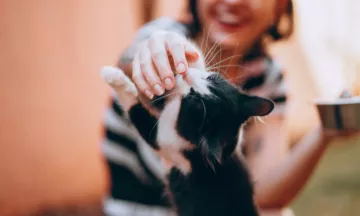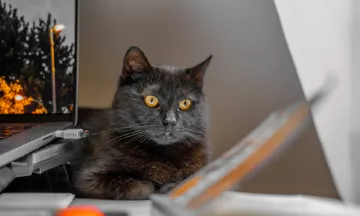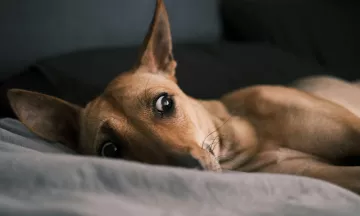Puppies need lots (and lots) of care and attention. As the proud owner of a young dog, it’s comforting to know that you can engage the services of a dog sitter for those moments that you have to tear yourself away from him. Running a puppy crèche is most pet sitters’ idea of heaven! Yet, providing a puppy sitting service is not without its challenges. It’s important to ensure that the puppies in your charge are accommodated in a safe and suitable environment. Puppy sitters are also expected to have the requisite knowledge, skills and dedication. Discover all you need to know about puppy sitting below.
At what age is your puppy ready to be left with a dog sitter?
Advice: always wait until at least 12 weeks of age (and your puppy has had the necessary vaccinations). It’s wise to ensure that your little whippersnapper has settled into your own home before whisking him off him to a dog sitter. After all, he’s recently undergone the huge adjustment of leaving his litter (and the care and companionship of his mother and siblings). So, allow your pup to get used to his new home environment before placing him with a dog sitter (for any considerable length of time).
Handing over your precious little bundle to a dog sitter might seem rather daunting. But for your puppy, it can be an incredibly enriching experience. Provided it’s done correctly, introducing him to a variety of different people, animals, objects, scents and sounds during the socialisation phase is extremely educational for your pup. And, he’ll grow up to be a confident, sociable and sweet-natured canine companion as a result.

What type of environment is suitable for puppies?
A small-scale pet sitting service (where the puppy can board in a homely environment or enjoy doggy day care services specifically geared to puppies) is the optimal solution. It’s essential that the dog sitter is available to keep a continuous eye on the puppy. Their house and garden must also be safe and secure.
You can make your house puppy and dog-proof by removing any potential dangers:
- Ensure that all doors and windows are closed
- Make sure that rooms are free from loose electricity wires and open sockets
- Place small objects out of reach
- Place poisonous plants out of reach
- Place hazardous substances (cleaning products etc.) out of reach
- Ensure that floors are clean and not too slippery
- Make sure that the house is clean and always use safe (and preferably natural) cleaning products
What does a puppy require from his home boarding service?
- Peace and quiet: puppies sleep for up to 20 hours per day! Indeed, young dogs need all the sleep they can get to process the deluge of impressions and experiences they’re exposed to in a day.
- Safety: during walks, the puppy must be leashed or under constant supervision in a secure, fenced-off area.
- Playtime: between naps and potty breaks, puppies have just one thing in mind: play, play and more play! Play isn’t only important for the development of their muscles and joints; it also teaches them how to cavort safely and gently, and, of course, what they can and cannot play with. So, make sure that the toys in your home are safe and suitable for puppies.
- House training: young pups that aren’t fully house trained must continue their ‘schooling’ with the dog sitter. Young puppies must be let out every 2-3 hours. Dog sitters therefore require a considerable amount of time and patience. Not to mention bucket loads of (ecological) detergent and oodles of kitchen paper at the ready :-)
- Socialisation: it’s essential that the dog sitter gradually exposes the puppy to contact with other people, dogs, animals and children. This ensures that the pupster in question develops into a sociable, well-behaved dog that’s not afraid of the unfamiliar. It’s important that this is done in the right way, so always remember to: socialise, NOT traumatise.
- Clarity/Education: puppies require clarity and consistency. The education that their pet sitter provides must therefore mimic the one that they receive at home. So, always agree on the rules and make sure that you use the same commands.
What does a puppy need to take with him to his home-boarding accommodation?
- Puppy food
- Chewing sticks/toys
- Collar/harness and leash
- Dog collar light (for during the dark)
- Pooh bags
- Dog passport
- Own pillow/blanket, and perhaps an item of his owner’s clothing
To conclude, puppies require lots of time and attention from their dog sitter, but they can have the best time of their lives if you take into consideration the above! If you’re searching for a puppy sitter for your young dog, then make sure that you arrange for an extensive introduction beforehand.





